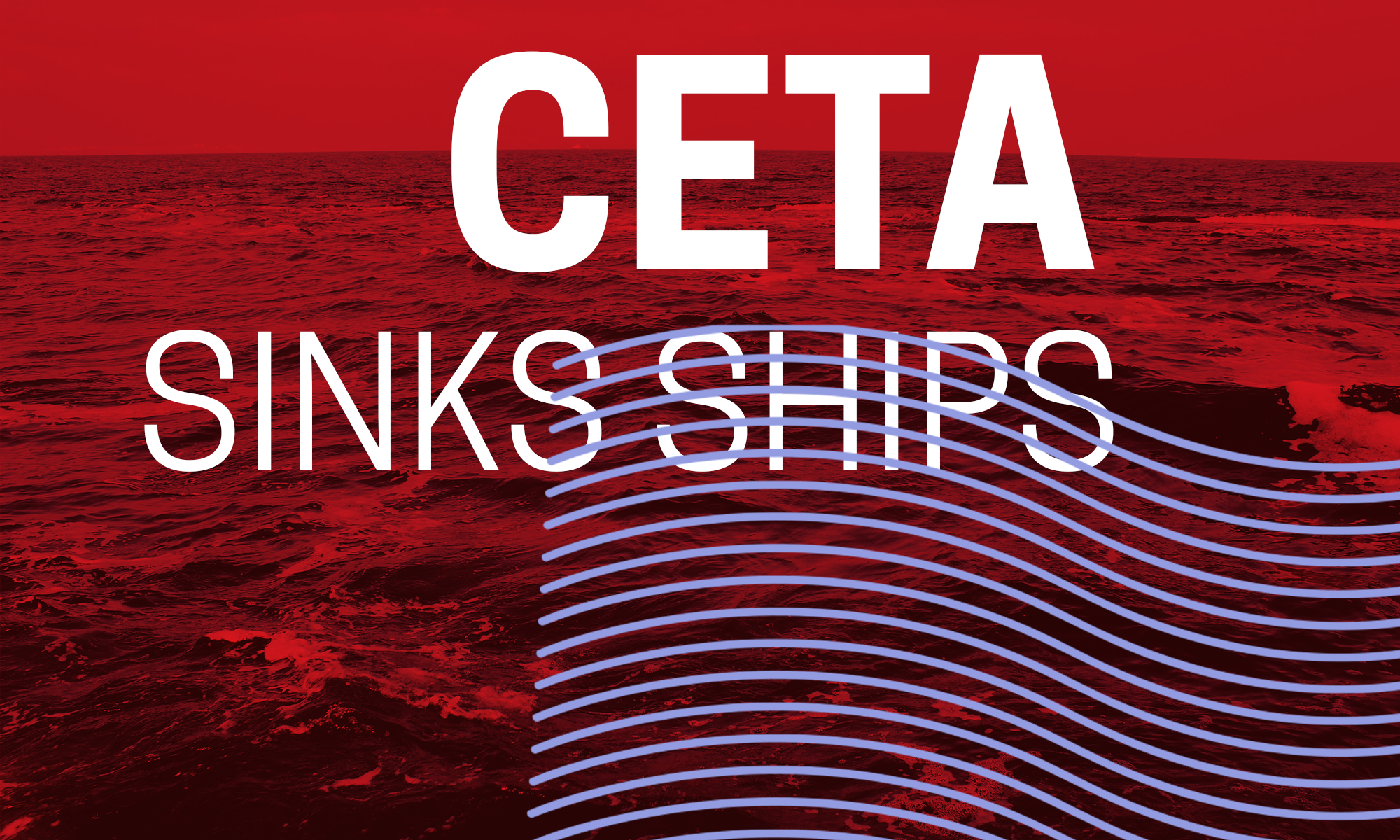12/01/2017
Cher Mr. le Vice-President:
Je vous félicite de votre bon discours mene en 3 temps sous de conditions difficiles d’espace, de conditions météorologiques et du milieu urbain.
Les 6 orateurs, dont Vince, Mme. Sicoli, le représentant des employés du Transport Fédéral, celui qui vous a suivi à deux reprises ainsi que le député neo-démocrate de Rosemont ont tous bien parlé et on a senti le moral des participants s’élever.
Cependant, vous ne faites qu’amorcer la serie d’actions syndicales, menés avec d’autres où, si nécessaire, seuls, que nous devrons accomplir si nous entamons de faire réviser ou arrêter le CETA.
Vous m’avez parlé d’un échéancier d’actions qui ne débuteraient qu’en 6 mois, quand nous devrions parler de 6 jours:
Le CETA, sous forme de la Loi C-30 n’a, de façon finale, été ni votée ni approuvée par les Députés de la Chambre des Communes et qu’il ne sera possible de le faire qu’apres l’Inauguration de la Session d’Hiver du Parlement du Canada, en 17 jours.
La phase préparatoire à l’Integration du C.E.T.A. au Code Legal Canadien s’est terminée en Novembre; C’est pourquoi le gouvernement a cru pouvoir passer la Loi C-30 avant Noël, au lieu de seulement après, comme il avait originellement entendu le faire.
Aussitôt la Loi votée au Parlement ( n’importe quand après 1100 heures le Lundi, Le 30 Janvier) et celui de l’Europe Unie ( Jeudi, le 2 Fevrier), le C.E.T.A. viendra provisoirement, avec 95% de ses clauses, incluant Le Chapitre de Transport Maritime, en vigueur IMMÉDIATEMENT.
C’est à dire, en aussi peu que 21 jours, non les 18 mois préconisés incorrectement dans la mise à jour du 14/12/16 sur la page Facebook du S.I.U.
Je vous rappelle, qu’étant le syndicat marin le plus important du Canada et devant l’inaction apparent des autres syndicats, le S.I.U.du Canada ne défend plus les seuls emplois de ses Membres mais toutes celles de la profession Maritime Canadienne, des Maîtres de quart aux mousses.
Vous aurez vu cet après midi que je ne suis pas le seul qui attendra le dévoilement de ce que nous devons faire, si notre profession doit survivre, et qui devront s’exécuter d’ici les prochains jours et semaines.
Il y a, pour commencer, la Journée d’Action Internationale contre le C.E.T.A. de Samedi, 21/1/17, suivant immédiatement l’Inauguration d’un President américain qui agira contre les Traités inéquitables de Libre-Échange.
Comme vous me l’avez si bien dit, nos emplois en dépendent.
Fraternellement,
